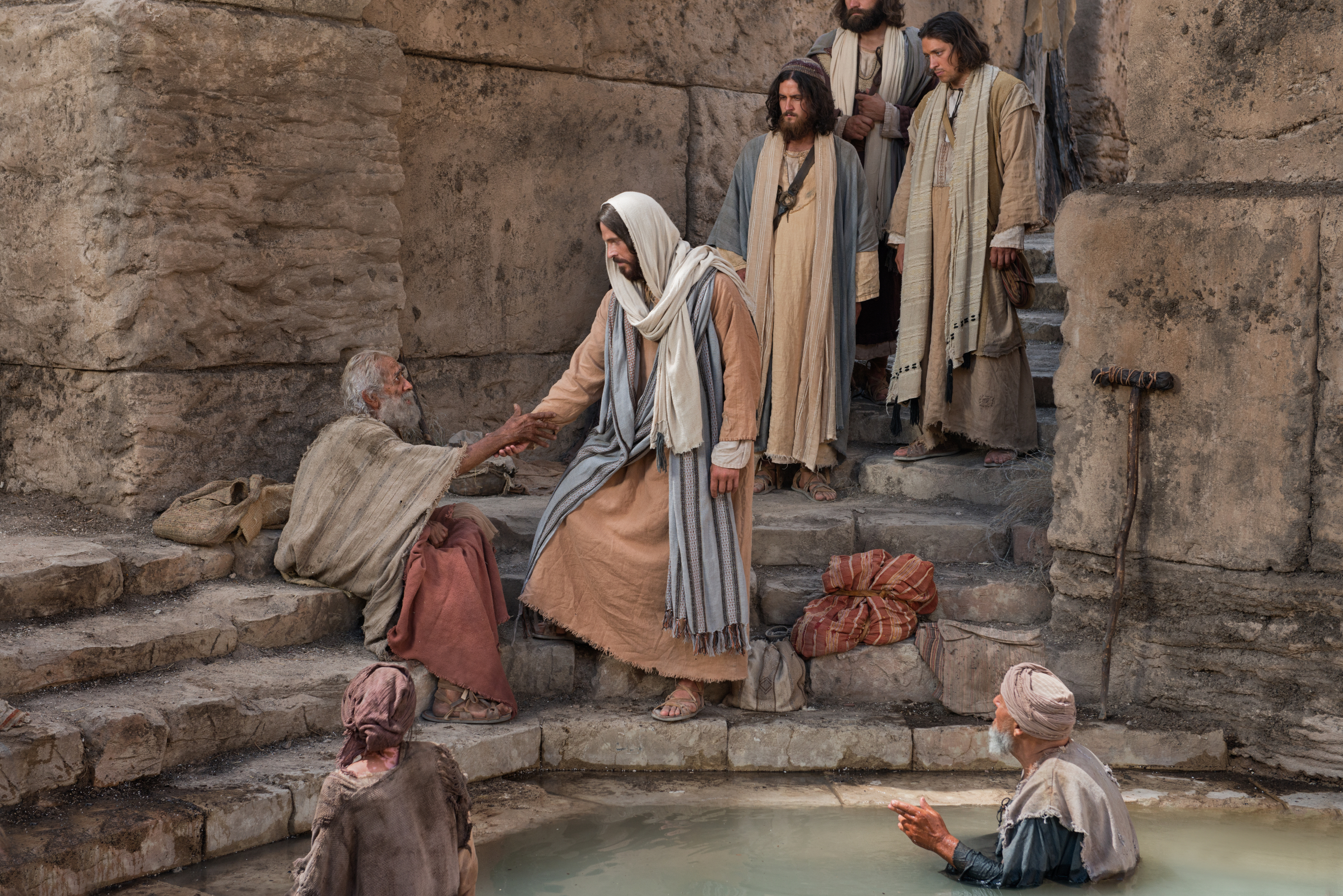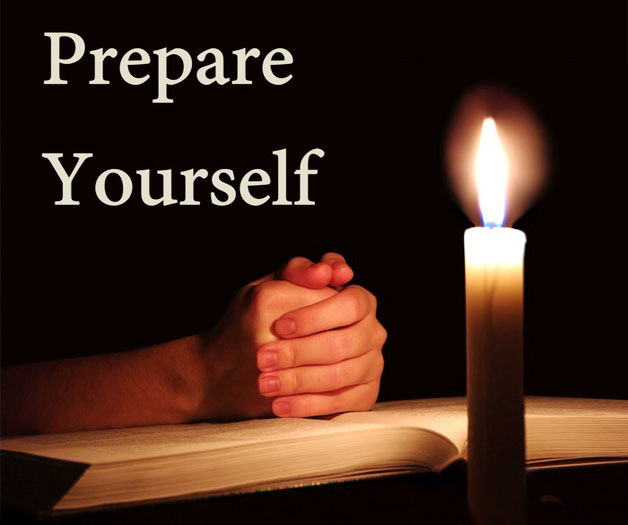Articles
Contemplation on the Sixth Sunday of Lent (Jn. 9:1-41)
 The man born blind is one of the most famous Bible stories we have heard throughout our lives. Our Lord has shown us that He can take what is nothing and create what is real. However, how would this story conclude if we replaced the man born blind with yourself? Let’s imagine that we are the blind ones and learn from these series of
The man born blind is one of the most famous Bible stories we have heard throughout our lives. Our Lord has shown us that He can take what is nothing and create what is real. However, how would this story conclude if we replaced the man born blind with yourself? Let’s imagine that we are the blind ones and learn from these series of
Week 5 of Holy Lent: At the Pool of Bethesda...

John 5:1-15
After this there was a feast of the Jews, and Jesus went up to Jerusalem. 2 Now there is in Jerusalem by the Sheep Gate a pool, which is called in Hebrew, Bethesda, having five porches. 3 In these lay a great multitude of sick people, blind, lame, paralyzed, waiting for the moving of the water. 4 For an angel went down at a certain time into the pool and stirred up the water; then whoever stepped in first, after the stirring of the water, was made well of whatever disease he had. 5 Now a certain man was there who had an infirmity thirty-eight years. 6 When Jesus saw him lying there, and knew that he already had been in that condition a long time, He said to him, “Do you want to be made well?”
A Man Born Blind Receives Sight | Sixth Sunday of Lent:

On the last Sunday before Palm Sunday, we talk about the man who was born blind. This story is quite important and is found in John 9. This story teaches us not to judge people because of their appearances and disabilities. The blind man was not paid attention to, as people thought he was blind because one of his parents committed a sin. This is unfair as he was treated badly and was not helped. He was healed when Jesus spat on the ground, and with this he told the blind man to put the mud on his eyes and wash it in the pool of Siloam. This must mean that the blind man had faith in Jesus, as this pool was far away, and the man had never seen Jesus before. The fact that the man saw again emphasizes the point that Jesus is the `light of the world`. The blind man had great faith in Jesus, as he had never seen him, and therefore he could have easily thought he was being tricked. We should
First Sunday
Matthew 6:19-33
 Since birth, we were all taught to “seek first the Kingdom of God.” But in seeking the Kingdom of God we must challenge ourselves and give up our own desires. We often think that by striving for holiness, we will no longer be happy or by striving for righteousness, everything else in our lives will falter. Sadly, we put so much faith in our own abilities and forget the power of God. We forget how much He has given us, we forget how much He suffered for us, we forget that even our trusted abilities were given to us by Him, and the most unfortunate of all, we forget that ALL things are possible to Him.
Since birth, we were all taught to “seek first the Kingdom of God.” But in seeking the Kingdom of God we must challenge ourselves and give up our own desires. We often think that by striving for holiness, we will no longer be happy or by striving for righteousness, everything else in our lives will falter. Sadly, we put so much faith in our own abilities and forget the power of God. We forget how much He has given us, we forget how much He suffered for us, we forget that even our trusted abilities were given to us by Him, and the most unfortunate of all, we forget that ALL things are possible to Him.
When we put so much focus on our academic, career, social, or physical goals yet forget our spiritual goals, our hearts and minds begin to accumulate many impurities because of their lack of nourishment. However, we must be careful what we place into our hearts and where we place our hearts, “For where [our] treasure is, there [our] heart will be also.”(Matthew 6: 21). If our focus is on the Kingdom of God, only things leading to the Kingdom of God will be in our hearts and therefore leaving our lips; because, let us not forget that “out of the treasure of the heart, the mouth speaks.” (Matthew 12:34).
During Preparation week of Great Lent, we should set our eyes on heaven. We must prepare ourselves to place God first in our hearts and lives for He put us first before the creation of the world and set everything under our feet. He promises never to leave us in need of anything as we are more of value to Him than the birds of the air, which He also provides for, according to Matthew 6: 26-27. He promised to love us forever and fulfilled His promise by sending His Son to purchase us by His blood. He promised to always fill us; however, we have to open our hearts and allow Him entrance. So let us all open our hearts before God and allow Him to lead us to Him in purity and righteousness as King David in the Psalms said, “Search me, O God, and know my heart; Try me, and know my anxieties; and see if there is any wicked way in me, and lead me in the way everlasting.” (Psalm 139: 23-24)
Author: Marina Abdelsayed
 A lady came to me complaining from her son who entered the day care center. "For the last few days," she told me, "I have been patiently scolding him for doing something wrong, saying, “Don't do that.” But he kept answering me, “No, I will do it.”
A lady came to me complaining from her son who entered the day care center. "For the last few days," she told me, "I have been patiently scolding him for doing something wrong, saying, “Don't do that.” But he kept answering me, “No, I will do it.”
"I would tell him gently, 'Honey, that's wrong.'
"But he insisted, "I will do this. I will do it."
I was surprised to hear this because I know this kid to be a














 Subscribe to RSS Feed
Subscribe to RSS Feed